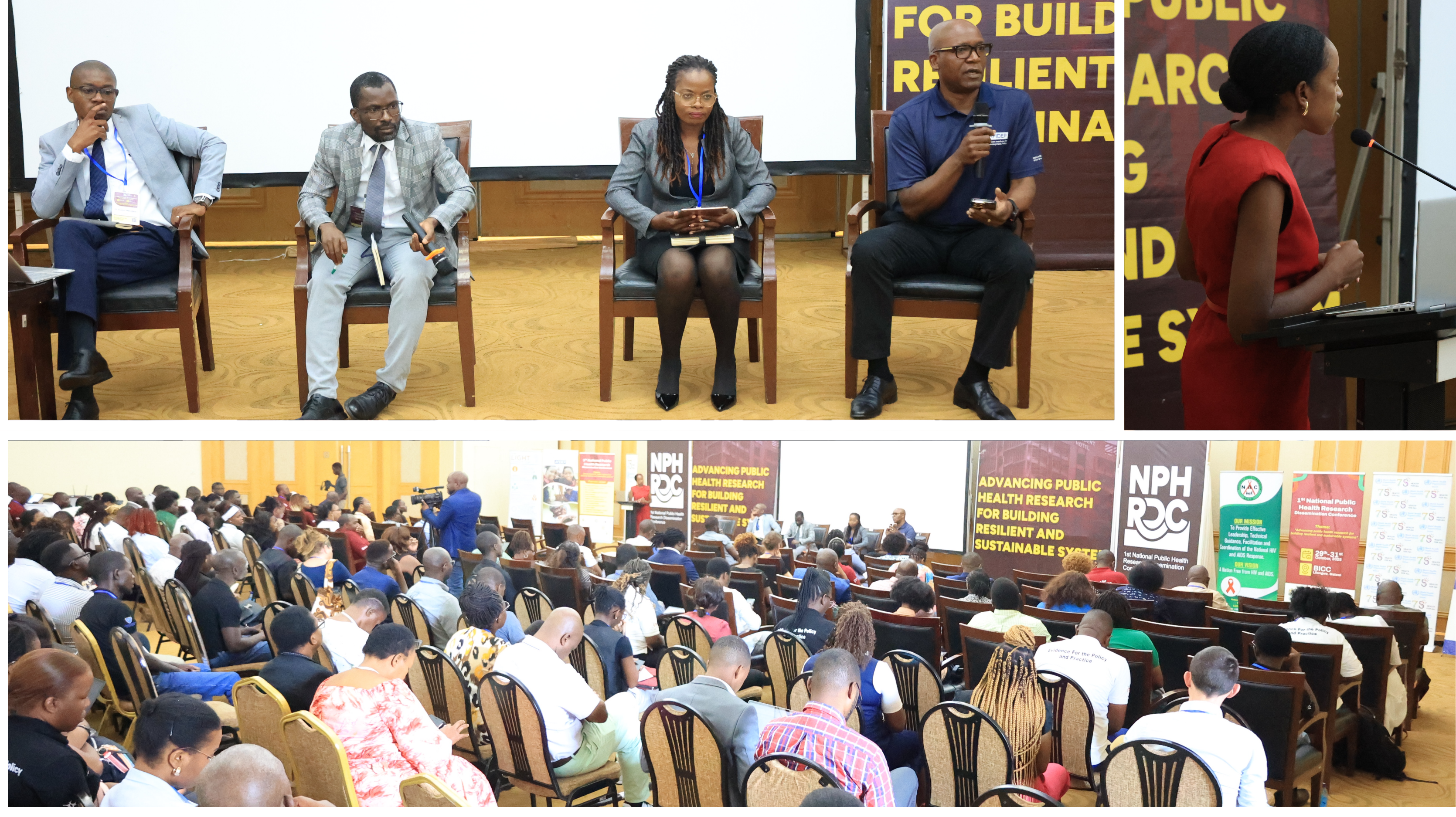Blogs

At Malawi’s first-ever National Public Health Research Dissemination Conference (NPH-RDC), held under the theme “Advancing Public Health Research for Building Resilient and Sustainable Systems,” one of the most compelling sessions explored how gender dynamics shape the fight against tuberculosis (TB). Convened by the Leaving no-one behind: Transforming Gendered pathways to Health for TB (LIGHT) Consortium partners in Malawi, the African Institute for Development Policy (AFIDEP) and the Malawi Liverpool Wellcome Programme (MLW), in collaboration with the National TB and Leprosy Elimination Programme (NTLEP), the plenary session brought together experts, policymakers, and advocates to discuss how Malawi can build a more inclusive and effective TB response.
Opening the discussion, Dr. Kuzani Mbendera, Programme Manager for NTLEP, highlighted the persistent gender gap in TB services. He explained that while health interventions have historically focused on women and children, men are less likely to seek testing, initiate treatment, or complete care. “Addressing gender gaps in the TB response, therefore, isn’t just about fairness; it’s about effectiveness. If we keep missing men, we’re missing a big part of the epidemic,” he said.
Dr. Eliya Zulu, Executive Director of AFIDEP, explained that the LIGHT Consortium was established to bridge the gender gap in TB prevention, diagnosis, and treatment, particularly among men, who are almost twice as likely as women to develop and transmit the disease. “The consortium is built on the principle that good science must lead to better policy and practice,” said Dr. Zulu. “Our work is fully embedded within national health systems to ensure that evidence directly informs TB programme decisions.”
From an epidemiological standpoint, Dr. Augustine Choko of the Malawi Liverpool Wellcome Programme explained that roughly two-thirds of TB transmission originates from men to other men, women, or children. “If we focus on men, we protect everyone,” he said. He observed that despite free TB services, many men delay seeking care due to stigma, workplace demands, or unwelcoming clinic environments.
Ms. Meclina Chirwa, a TB advocate and journalist, emphasised the importance of local ownership in sustaining progress. “We’ve seen men using football matches to talk about TB at halftime instead of the score,” she said. “That’s the kind of safe spaces we need to create everywhere.” She called for more peer support groups for men and greater community-led advocacy to normalise health-seeking behaviour and strengthen accountability at local levels.
Dr. Zulu also emphasised the importance of domestic financing and national ownership of the TB agenda. Drawing on AFIDEP’s work with the Network of African Parliamentary Committees on Health (NEAPACOH), he noted that Malawi’s Parliamentary Committee on Health is pushing for increased national investment in TB. “We can’t depend on donors forever,” he said. “It’s time to explore innovative, homegrown financing models such as micro-levies on mobile transactions while integrating TB services within a broader primary health care system.”
Dr. Mbendera added that Malawi’s TB programme has long collected gender-disaggregated data, but recent research has deepened understanding of gendered barriers to care. Findings from the National TB Prevalence Survey show that men are up to three times more likely than women to have pathologically confirmed TB, prompting the Ministry of Health to introduce Mobile Diagnostic Units equipped with digital X-rays. “These units have helped us reach men in industries like mining and construction,” he said. “They also create opportunities for research and innovation, linking service delivery with scientific learning.”
The discussion also underscored the close relationship between TB and HIV, often described as “first cousins.” Panelists agreed that integrating TB and HIV services is critical for effective care. Dr. Zulu pointed out that integration enables more efficient use of resources and provides holistic support to patients. At the same time, Dr. Choko noted that expanded access to antiretroviral therapy (ART) has improved TB detection through regular screening. However, Dr. Mbendera cautioned that TB must maintain a dedicated focus within the health agenda due to its unique epidemiological patterns in Malawi.
The role of the media also played a prominent part in the conversation. Ms. Chirwa commended NTLEP for its collaboration with journalists but urged greater openness from institutions. “When journalists reach out for information, we often get silence,” she said. “If we truly want to fight TB, we must treat journalists as partners, not outsiders.”
Mphatso Phiri, a Doctoral Fellow with the LIGHT Consortium, reflected on sustainability, urging policymakers to build on progress rather than start over with each project cycle. “Malawi has developed many successful health interventions, but too often, we abandon them when projects end,” he said. “We must embed what works into the system.” He emphasised the need to integrate TB, HIV, and other essential services under a strong primary health care framework and ensure that media and researchers collaborate to promote evidence-based reporting.
The session concluded with a powerful message that resonated throughout the conference: ending TB as a public health threat by 2035 will require more than medical solutions; it will necessitate a gender-sensitive, evidence-driven, and community-anchored approach backed by a strong policy commitment, sustainable financing, and collaboration across all sectors.
The LIGHT Consortium’s work in Malawi demonstrates that when gender equity and evidence inform policy and community action, the path toward ending TB becomes not only more straightforward but achievable.

